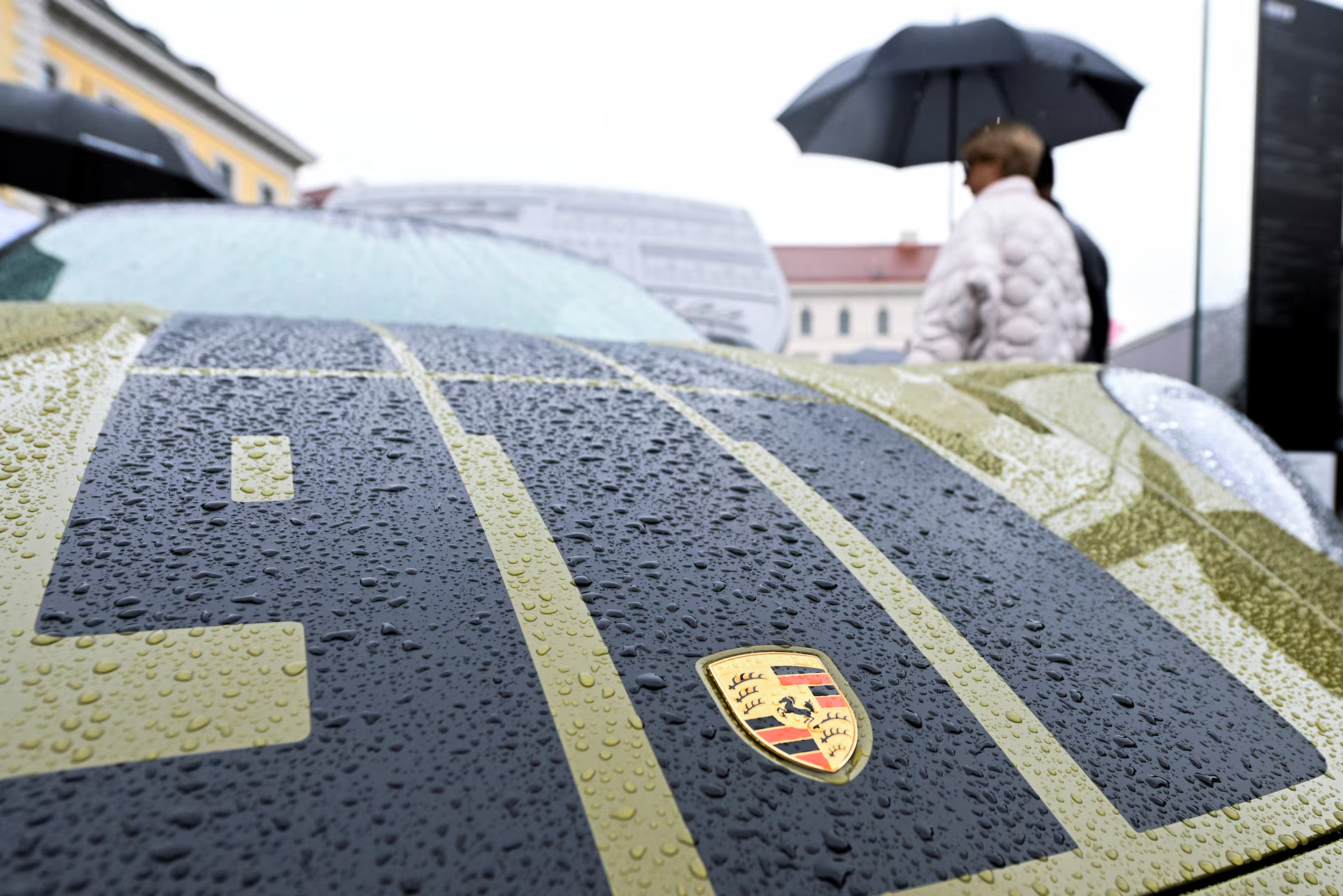Last week, Porsche announced a restructuring of its product strategy, a move Reuters called an "ugly U-turn" in its electric vehicle (EV) ambitions.
Instead of betting on EVs, the new plan focuses on the combustion engine models that have shaped the brand. For example, the Cayenne, originally slated to be electric, will now launch with combustion and hybrid engines. New models will continue to be gasoline and hybrid until the 2030s.
Along with the product restructuring, the company's profit margin is expected to be no more than 2%, down from the previous plan of 5-7%.
The automaker blamed weak demand, pressure from the key Chinese market, and higher US tariffs for this restructuring.
 |
A Porsche vehicle at the Munich Motor Show, Germany, 10/9. *Reuters* |
Meanwhile, investors believe the nearly century-old company is still stuck between its iconic, gas-guzzling sports cars and the electrification process.
In reality, the shift to EVs by major European automakers is lagging behind that of younger Chinese companies.
Three months ago, the Porsche Taycan Turbo GT, one of the fastest electric sedans on Germany's Nürburgring Nordschleife race track, was overtaken by Xiaomi's new SU7 Ultra. The Nordschleife is a section of the Nürburgring, alongside the Grand Prix track. While the Grand Prix track is famous for hosting F1 races, the nearly 21-km Nordschleife, with over 17 corners, is known as the "Green Hell".
Xiaomi's SU7 Ultra completed the German track 2.5 seconds faster than the Porsche Taycan Turbo GT. Electrek called this overtaking an "embarrassing moment", as Xiaomi, a Chinese phone maker, has only been producing cars for three years.
Porsche's sales in the first six months of the year were also lackluster. Deliveries fell 6% year-on-year, while electric and hybrid models increased 14.5%. This means the underperforming segment is gasoline, not electric. Electrek analyzed that the decline in sales was mainly in regions with high EV demand (Germany, China).
China saw the steepest drop in sales for Porsche, down 28%. Fierce price competition and economic downturn have eroded consumer demand, especially for premium brands like Porsche.
North America, a major market with 10% growth, now faces tariff risks from the US. After the EU and the US reached a trade agreement, the US import tariff on cars from the EU is 15%, still much higher than the previous 2.5%.
Deliveries in the European market declined slightly. Porsche's competitors are adapting to the global EV transition, as combustion engine vehicles are expected to be banned from sale starting in 2035. Automaker CEOs have urged Brussels to relax this target and be more open to gasoline cars, arguing that the EV target is no longer feasible due to over-reliance on Asian batteries.
With a comprehensive product strategy restructuring, Porsche expects positive impacts in the medium and long term. They are targeting an operating return on sales of 10-15% in the medium term, after reaching 18% and 14% in 2023 and 2024, respectively.
In the short term, the delay in EV targets has reduced Porsche's operating profit by 1.8 billion euros (over 2.1 billion USD). With this decrease, analysts predict Porsche will lose money in the second half of the year.
Despite this, analysts at Bernstein, an investment research firm, note that billions of euros poured into the EV transition have not produced any serious competitors to leading companies like Tesla.
Meanwhile, the mixed results of Volkswagen, Porsche's parent company, in electrification are seen as a way to restore the company's reputation after the emissions scandal 10 years ago. This scandal spurred EV production plans, before they were forced to restructure their products, focusing on their core gasoline-powered products.
Overall, the global auto industry is undergoing rapid electrification, led by Chinese companies. According to a BloombergNEF report, global EV sales are expected to reach 22 million units in 2025, up 25% from last year. This increase is supported by falling lithium-ion battery costs and more affordable EV models.
Chinese car sales will account for nearly two-thirds of global production. They supply cheap EVs, control the battery supply chain, and are not hampered by centuries-old combustion engine thinking.
Bao Bao (*Reuters, Electrek*)












